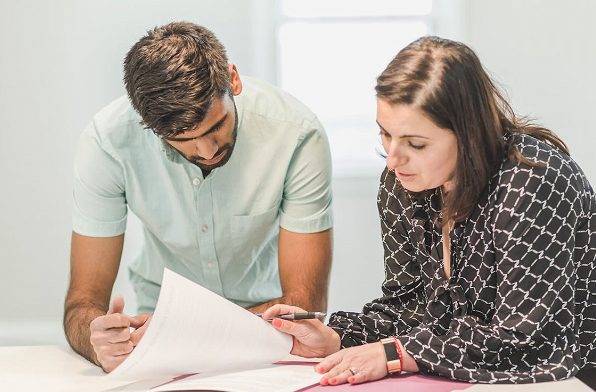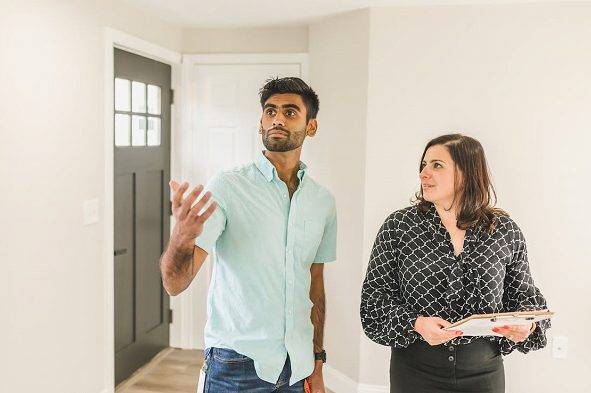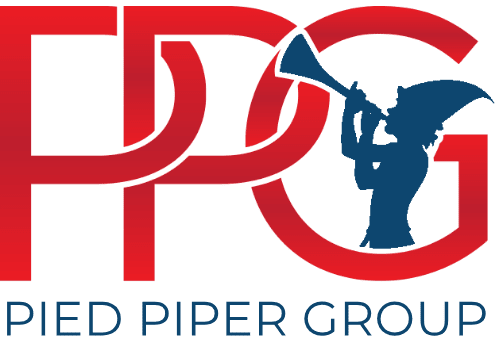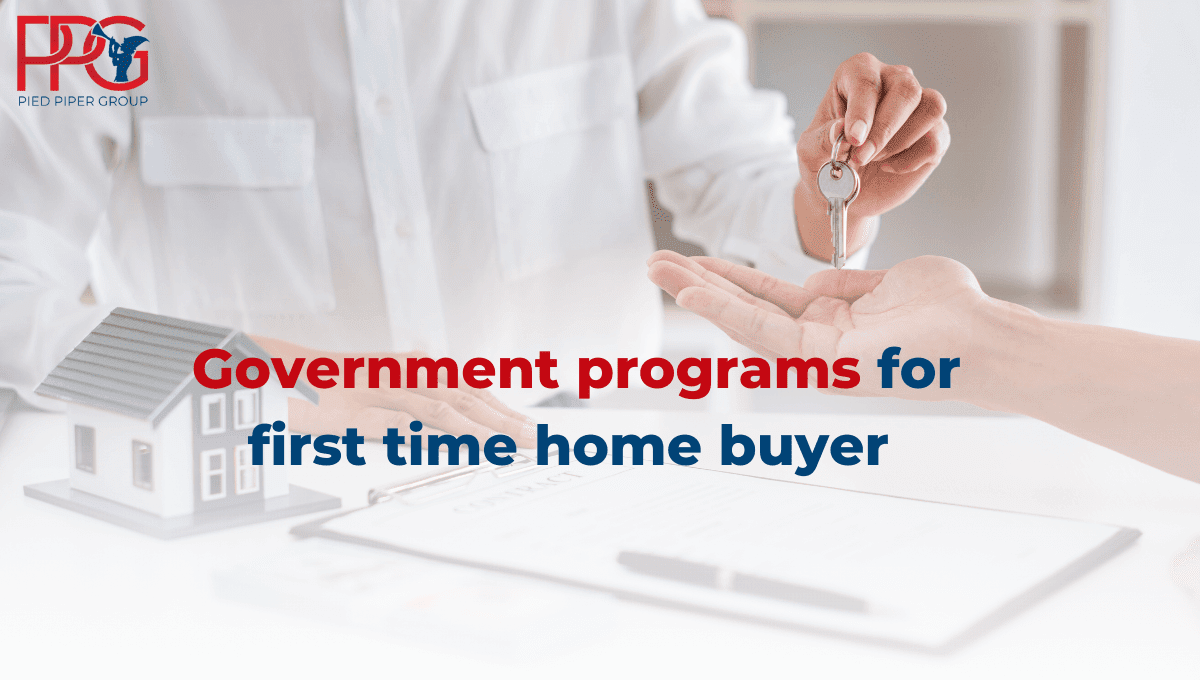
Are you on the hunt for government loans for first-time home buyers? The United States Government under President Joe Biden has introduced a series of grants and programs to facilitate homeownership for first-time homebuyers. These programs aim to address the housing crisis and inventory shortages by encouraging individuals and families from lower-income and marginalized groups with monetary incentives.
Today, first-time borrowers can qualify for a wide range of programs that offer sizable discounts on mortgage payments, lower interest rates, and government tax credits for first-time homebuyers. The US government wants to help you invest in your first residential property, with multiple housing programs awaiting approval from the US Congress.
Presently, there are three bills proposing first-time homebuyer tax credits, two bills facilitating first-time homebuyers with cash grants, two bills proposing ultra-low mortgage rates, one bill to forgo student loan debt for first-time homebuyers, and one bill that offers tax exemptions for savings allocated for a down payment.
Read on to explore government programs designed to promote affordability and inclusion for first-time homebuyers.
Table of Contents
8 Government Programs for First-Time Homebuyers in 2023
- FHFA First-Time Home Buyer Mortgage Rate Discount
- First-Time Homebuyer Act
- Downpayment Toward Equity Act
- Build Back Better Act
- First-Generation Down Payment Assistance
- Transforming Student Debt to Home Equity Act Of 2022
- Low-Income First Time Home Buyer Act (LIFT)
- First-Time Homebuyer Refundable Credit via The DASH Act
FHFA First-Time Home Buyer Mortgage Rate Discount
One of the most lucrative first-time home buyer government programs announced in October 2022, the FHFA First-Time Home Buyer Mortgage Rate Discount offers an automatic reduction in the interest rate for first-time borrowers who qualify for the program. Proposed by Fannie Mae and Freddie Mac, this program aims to reduce interest rates on conventional mortgage products by around 1.75%.
In order to qualify, the applicant must:
⦁ Be a first-time home buyer
⦁ Investing in a primary residence
⦁ Willing and able to move into the new home within 60 days of closing the deal
⦁ Belong to a low or middle-income group
⦁ Fund the home purchase with a conventional mortgage product
First-time homebuyers who qualify for this program will receive a discounted rate automatically. The exact discounted amount varies, depending on the mortgage pre-approval status, credit score, and income information.
First-Time Homebuyer Act
Introduced to the House Committee back in April 2021, the First-Time Homebuyer Act is also known as the First-Time Home Buyer Tax Credit Act. This program allows first-time home buyers up to $15,000 in refundable tax credits from the federal government.
In order to be eligible for this program, the applicant must:
⦁ Be a first-time home buyer
⦁ Qualify for the income and home purchase price requirements
⦁ Be investing in a first property to use as a primary residence
⦁ Be at least 18 years old or married to an 18-year-old individual
⦁ Be purchase a home from a non-family member
The $15,000 First-Time Home Buy Tax Credit Act is still awaiting a vote and approval to be passed as a law. But experts maintain that anyone who purchases their home from January 1st, 2022 can qualify for the tax credit once the bill becomes law.
Downpayment Toward Equity Act
Introduced to the House of Committee on Banking, Housing and Urban Affairs in April 2021, this program aims to offer down payment assistance for first-time home buyers. The Downpayment Toward Equity Act facilitates first-time home buyers with a cash grant of up to $25,000 to help them purchase their first residential property.
The cash grant can be used by first-time borrowers to address any expenses tied to homeownership, including real estate closing costs, mortgage, down payment, interest rate reduction, and other costs.
In order to be eligible for this program, the applicant must:
⦁ Be a first-time home buyer
⦁ Comply with the income and home purchase price requirements
⦁ Be investing in their first primary residence
⦁ Apply for a government-backed mortgage, such as FHA, USDA, or conventional loans
⦁ Have parents or legal guardians who have not owned a primary residence, unless they lost the residential property to a foreclosure or short sale, or the applicant lived in foster care during their lifetime
The $25,000 Downpayment Toward Equity Act is still awaiting a vote and approval to be passed into law. Experts are hopeful that this down payment assistance program will be highly effective at boosting low and medium-income households and facilitating homeownership for previously underserved communities.

First-Time Homebuyer Refundable Credit via The DASH Act
One of the leading government grants for first-time homebuyers referred to the Senate Committee on Finance, the First-Time Homebuyer Refundable Credit offers up to $15,000 in tax credits under the Decent, Affordable, Safe Housing for All Act (DASH Act).
The DASH Act is quite similar to the First-Time Homebuyer Act, but the eligibility requirements are much simpler and accessible for all. The DASH Act focuses on income status and reducing the home purchase price for first-time borrowers. Under this program, qualifying first-time home buyers can receive up to $15,000 in refundable tax credits.
The eligibility requirements include:
⦁ The applicant must be a first-time home buyer
⦁ Meet the limitations on the home purchase price
⦁ The applicant must be at least 18 years old or married to an 18-year-old
⦁ The applicant must be a U.S citizen
⦁ Applicants must have an adjusted gross income of $100,000
⦁ Married couples filing jointly must have an adjusted gross income of $200,00
The First-Time Homebuyer Refundable Credit via DASH Act is still awaiting a vote and passage from the US Congress.
Build Back Better Act
The Build Back Better Act, first introduced in September 2021, focuses on empowering communities throughout the United States with a highly inclusive stimulus program focusing on climate change, education, and safe housing. This program has been passed by the House and is currently awaiting a vote from the Senate.
The Build Back Better Act allocates a cash grant of up to $25,000 for first-time, first-generation applicants looking to buy their first home. This cash grant can be used to fund any line-item cost associated with the first home purchase, such as interest rate reductions, down payment, and real estate closing costs.
The bill focuses on the first-generation home buyer, which basically refers to all first-time home buyers whose parents or legal guardians do not own a primary residence.
The eligibility requirements for this program include:
⦁ Applicants must be first-time home buyers
⦁ Applicants must comply with the area-specific income and purchase price guidelines
⦁ Applicants must be purchasing a home as their primary residence
⦁ Applicants must apply for a government-backed home loan, such as conventional mortgages, USDA or FHA loans
⦁ The applicant’s parents or legal guardians must not currently own a home unless the applicant has lived in foster care during their lifetime.
First-Generation Down Payment Assistance
The First Generation Down Payment Assistance Program facilitates homeownership with a cash grant of $25,000. This program is a part of the Housing is Infrastructure Act of 2021, quite similar to the Downpayment Toward Equity Act with much simpler and straightforward eligibility requirements. This bill was introduced in July 2021, awaiting passage from the US Congress.
This program targets first-generation home buyers, which includes all first-time borrowers whose parents or legal guardians do not own a residential property currently.
The eligibility requirements for this program include:
⦁ Applicants must be first-time home buyers
⦁ Applicants must comply with the area-specific income and property purchase price guidelines
⦁ Applicants must be purchasing their first residential property
⦁ Applicants must apply for a government-backed mortgage product, such as FHA, USDA, and conventional home loans
⦁ The applicants’ parents or legal guardians do not own a residential property unless they have lived in foster care during their lifetime

Transforming Student Debt to Home Equity Act Of 2022
One of the most noteworthy bills introduced to the House in April 2022, the Transforming Student Debt to Home Equity Act aims to facilitate first-time home buyers struggling with burdensome student loan debt. This program aims to facilitate homeownership for first-time borrowers making monthly payments on their student loan debt.
It offers buyers lower mortgage rates, and sizable discounts on government-owned residential properties, and provides down payment assistance. It was referred to the Committee on Financial Services on April 1, 2022.
The eligibility requirements for this program include:
⦁ Applicant must be a first-time home buyer
⦁ Applicant must have a mortgage approval
⦁ Applicant must be willing to own and reside in the new property for at least three years
⦁ Applicant’s federal student loan payments should not be in default
⦁ Applicant must be willing to take a class on homeownership
The Transforming Student Debt to Home Equity Act is still awaiting voting and passage to become a law and provide assistance to first-time home buyers.
Low-Income First Time Home Buyer Act (LIFT)
The Low-Income First-Time Home Buyer Act, popularly known as the LIFT Act, was introduced to the House in September 2021. This Bill was then referred to the Committee on Banking, Housing, and Urban Affairs, where it is currently awaiting approval for passage.
The LIFT Homebuyers Act aims to facilitate homeownership for first-generation home buyers with modest income backgrounds, presently struggling to pay rent and afford safe, secure housing. This program offers below-market mortgage rates with reduced interest payments, so first-time borrowers can generate equity and wealth faster.
It aims to facilitate flexible mortgage repayment plans at reduced interest rates so first-time borrowers can pay off their loans in 20 years instead of 30 years. Applicants can reap the advantage of the LIFT Homebuyers Act in combination with other first-time home buyer assistance programs, such as the $25,000 Downpayment Toward Equity Act or the $15,000 First-Time Home Buyer Tax Credit.
The eligibility requirements for this program include:
⦁ Applicants must be first-time home buyers
⦁ Applicants must comply with the income and property price guidelines specified for the area
⦁ Applicants must apply for an FHA-backed home loan
⦁ Applicant’s parents or legal guardians must not own a residential property unless they have been admitted to foster care during their lifetimes
Final Thoughts
Finding the right government assistance program for first-time home buyers can be overwhelming, especially if you struggle to read and comprehend legal paperwork. As many of these bills are awaiting voting and passage, it is wise to choose a program that is applicable to all first-time home buying purchases made since January 2022, such as the $15,000 First-Time Home Buyer Tax Credit Act.
When browsing for government-backed loans and assistance programs, it is important to scrutinize the eligibility requirements to assess whether you’re a likely candidate for the program. Most first-time borrowers neglect research and paperwork, which proves as a terrible disadvantage in securing funding and assistance.
We advise working closely with a mortgage broker and advisor to find mortgage solutions and government programs that best align with your current financial standing and future goals. At the Pied Piper Group, we specialize in empowering first-time homebuyers with informative resources and personalized funding solutions.
Feel free to get in touch with our team for a detailed consultation session to discuss your mortgage funding and assistance needs.
Frequently Asked Questions (FAQs)
Which loan option is best for first-time homebuyers?
Experts believe that an FHA loan is the best option for first-time home buyers because it offers flexible eligibility requirements as compared to conventional mortgages. The down payment requirements are flexible, and borrowers can qualify with as low as a 3.5% down payment. More importantly, the upfront expenses are considerably low and borrowers don’t need high credit scores to qualify.
What benefits do first-time buyers get?
First-time homebuyers can qualify for a wide array of schemes and programs involving cash grants, tax credits, and tax exemptions. Many of these programs facilitate refundable tax credits, down payments, and closing costs. Other than government assistance, first-time homebuyers are more likely to qualify for lower interest rates as compared to borrowers with existing debt looking to secure funding for a second residential property.
How do I qualify for a first-time home buyers loan in the US?
You can qualify for a first-time home buyer’s loan by focusing on the following:
⦁ Improve your credit score and rating
⦁ Improve your debt-to-income ratio
⦁ Reduce your existing debt (student loan, auto loan, credit card, etc.)
⦁ Maintain a steady income and ensure job security
⦁ Grow your savings to make a sizable down payment
⦁ Work with a seasoned mortgage broker

